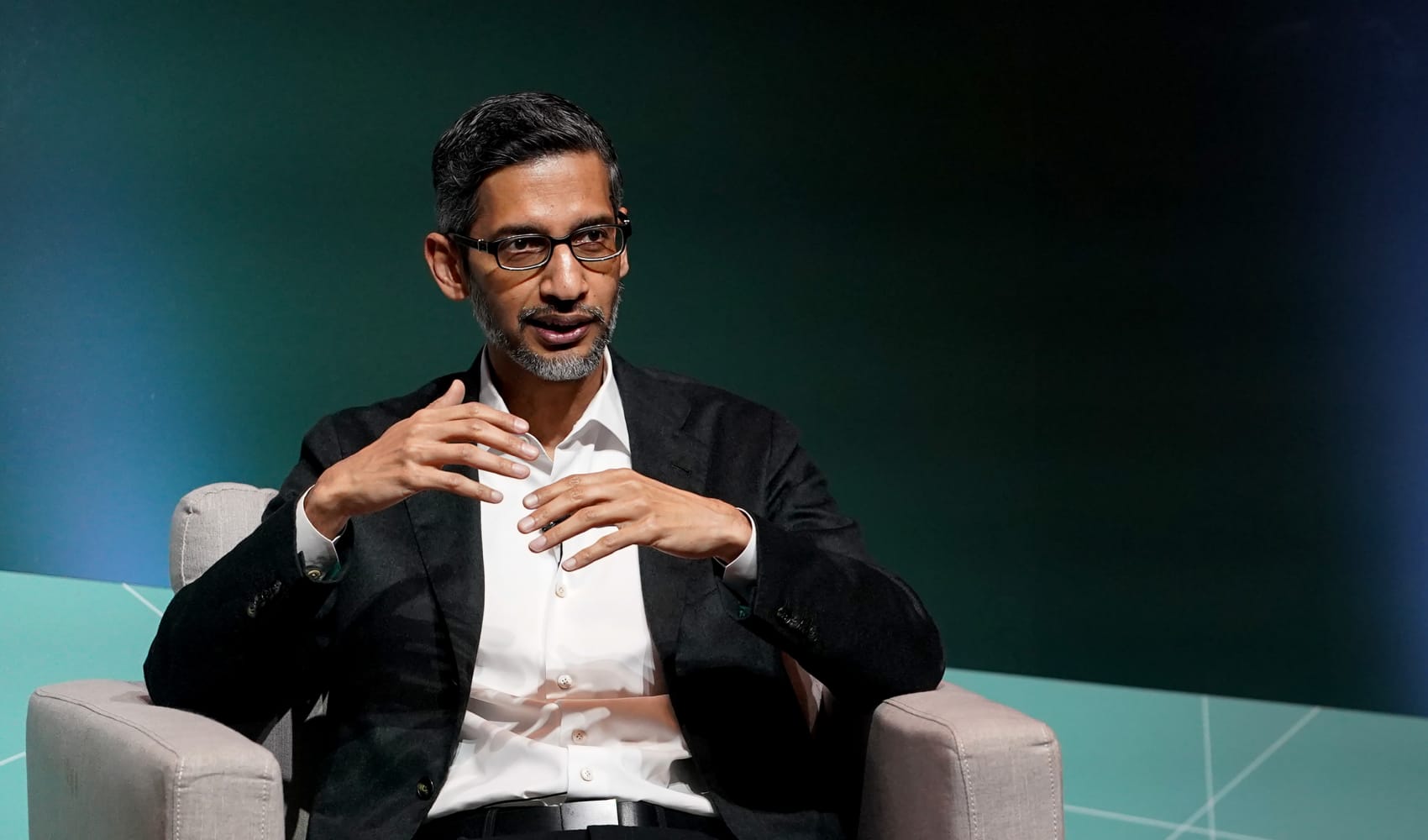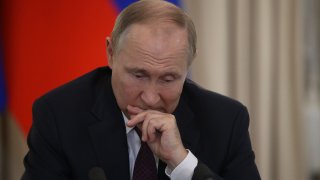
- While the U.S. midterm election results roll in, and point to a far tighter-than-expected race between Republicans and Democrats for control of Congress, half way across the world the vote count is being closely watched by Ukraine and Russia.
- A close confidante of President Vladimir Putin openly admitted to interfering in the U.S. election this week, and said his network would continue to do so.
- There have been fears a Republican landslide in the midterms could lead to a cut in funding for Ukraine.
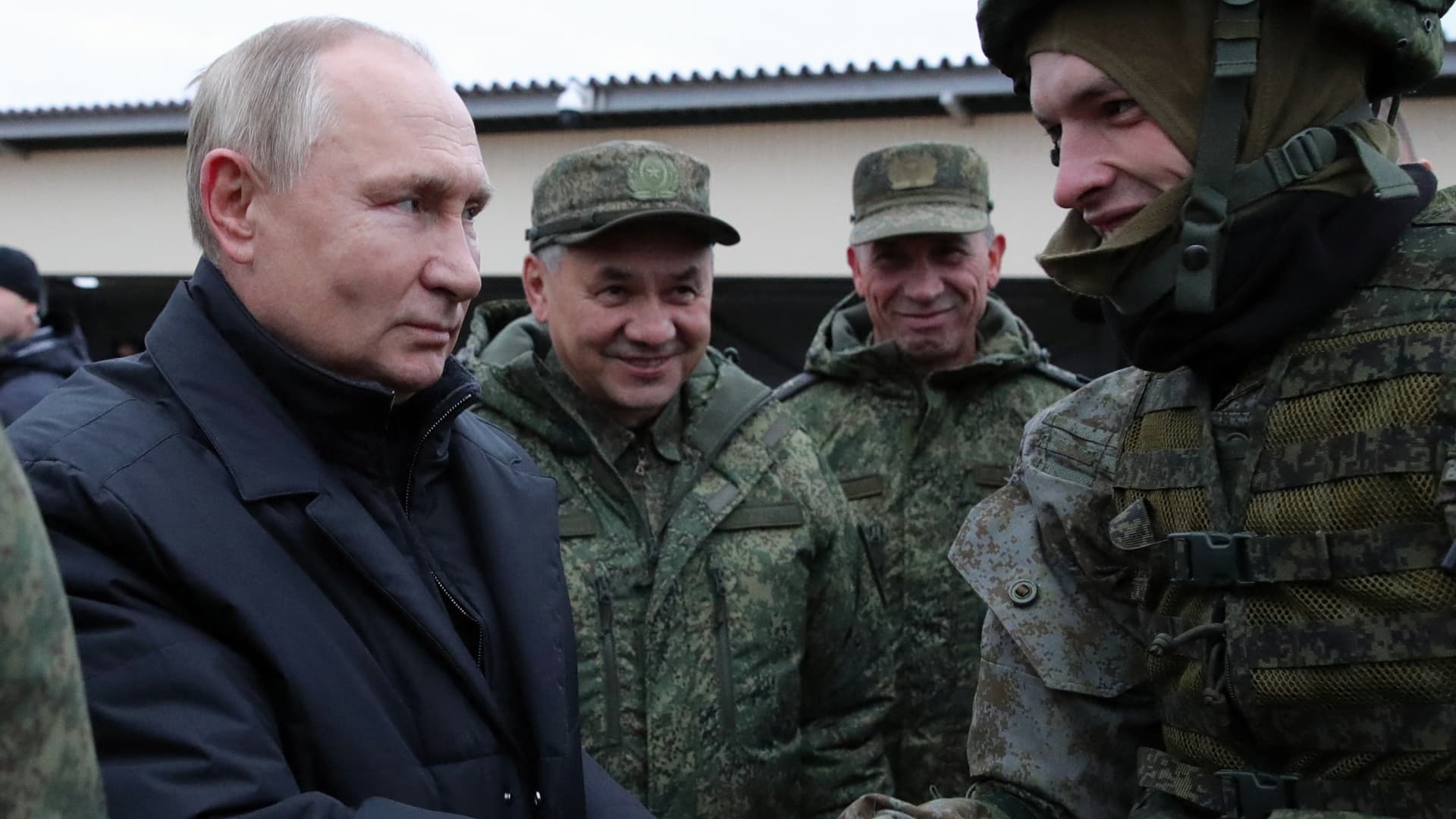
While the U.S. midterm election results roll in, and point to a far tighter-than-expected race between Republicans and Democrats as they vie for control of Congress, the vote is being closely watched in Ukraine and Russia with both gauging how the election could impact the war and geopolitics.
Although it has not commented publicly, Moscow is seen to favor a win for the Republicans in the midterms in the hope that a big power shift could bring about a change in the U.S.' foreign policy toward Ukraine — and could deepen rumblings of discontent among Republicans over the massive financial support the U.S. is giving Kyiv to fight Russia.
Nine months into the ongoing conflict and the Biden administration has now committed more than $18.9 billion in security assistance to Ukraine, according to the Department of Defense's latest figures.
There are some signs that bipartisan support for such immense and ongoing aid could be waning, however, with prominent Republicans starting to question how long the U.S.' largesse can continue, particularly against a backdrop of inflation, potential recession and rising living costs.
For one, prominent Republican Kevin McCarthy said in an interview in October there would be no "blank check" for Ukraine if the Republicans win a majority in the House of Representatives in the midterms.
Money Report
Shift in power ... and Ukraine support?
Russia could well hope that a shift in power after the the midterm elections could herald a cooler attitude toward Ukraine. But analysts say Moscow could be disappointed unless former leader Donald Trump is able to return to power, having signaled he could announce next week a plan to run for the presidency again in 2024.
"There's no significant downside pressure on U.S. military support for Ukraine through the end of 2023," Ian Bremmer, founder and head of the Eurasia Group consultancy, said in emailed comments this week.
"Further, most Republicans remain staunchly committed to Ukraine support, despite House minority leader Kevin McCarthy's announcement of 'no blank check' for the Ukrainians under a Republican-led House. The GOP congressional position, at least near-term, will be 'the U.S. gives military aid, the Europeans give financial aid,' which changes little on the ground," he added.
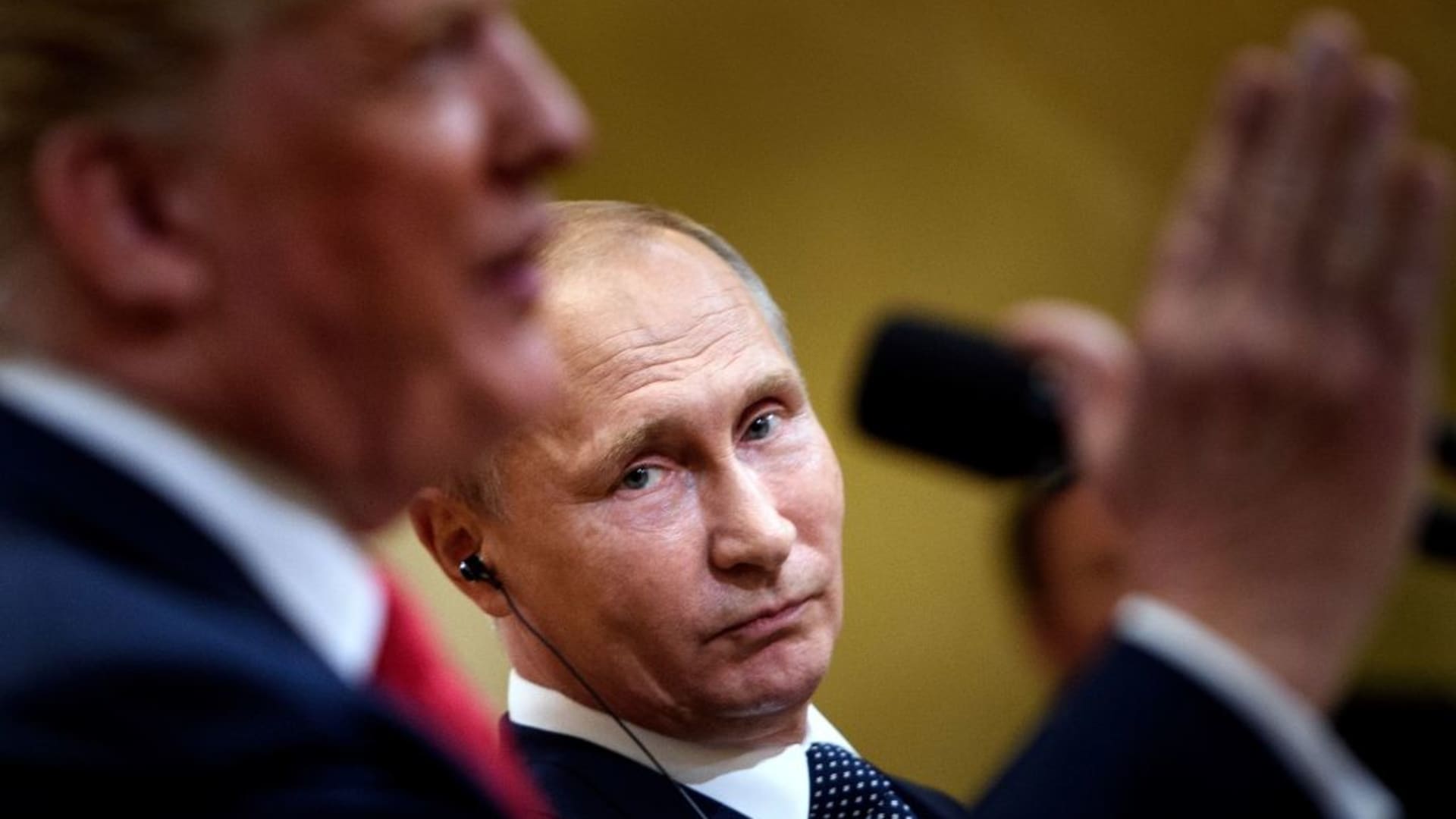
The bigger question comes from Trump announcing his presidential run, Bremmer said, adding that he expected such an announcement imminently.
That, he added, was likely to be accompanied by blaming Biden for the war with a populist opposition to billions of taxpayer dollars being spent on Ukraine, a position that "will gain momentum with MAGA supporters in Congress and undermine longer-term U.S. alignment with NATO allies," he noted.
The U.S. has sought to calm any nerves in Kyiv about a shift in Washington's attitude toward the country with Linda Thomas-Greenfield, the U.S. ambassador to the United Nations, making clear "that the United States' commitment to Ukraine is unwavering" when she met Ukraine's president on Tuesday.
Moscow's bad reputation
Moscow has earned itself a dubious reputation when it comes to U.S. democratic processes, found to have interfered in the 2016 election and suspected of continuing to sow political discord and in the country.
Russia has done little to dispel doubts over its involvement in a string of nefarious activities in recent years, from alleged cyberattacks to disinformation campaigns aimed at swaying U.S. voters and elections.
Putin's close confidante Yevgeny Prigozhin, an increasingly powerful oligarch who leads a state-backed private military group fighting in Ukraine, known as the Wagner Group — as well as several companies implicated in 2016 U.S. election interference — openly alluded to interfering in the U.S. midterms this week.
"We have interfered [in U.S. elections], we are interfering and we will continue to interfere. Carefully, accurately, surgically and in our own way, as we know how to do," Prigozhin said in comments posted by the press service of his Concord catering firm on Russia's Facebook equivalent VKontakte.
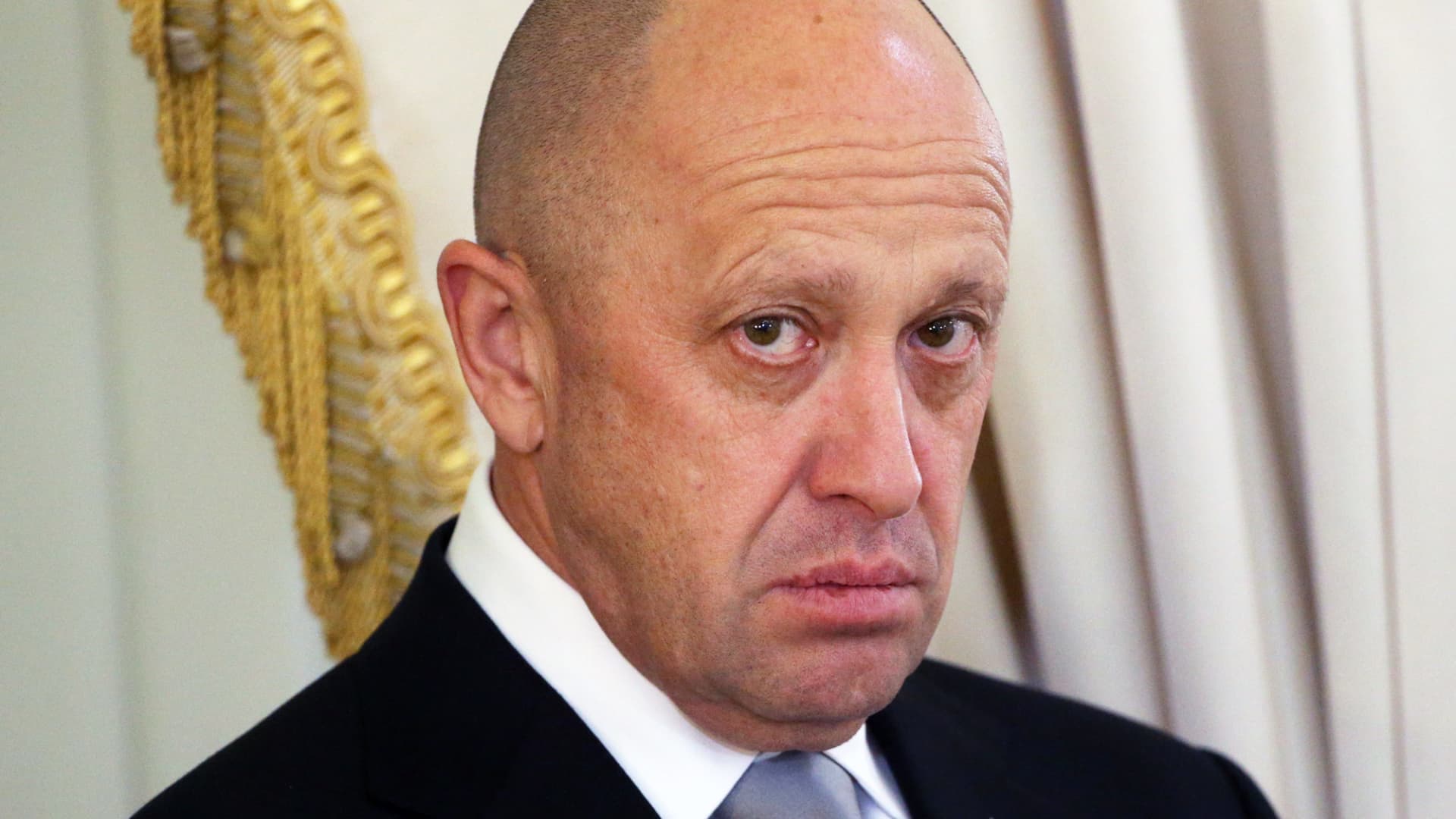
U.S. State Department spokesman Ned Price on Monday said that the Biden administration was not surprised by Prigozhin's admission, telling a briefing "his bold confession, if anything, appears to be just a manifestation of the impunity that crooks and cronies enjoy under President Putin and the Kremlin."
Prigozhin did not say whether the election interference was aimed at propelling Republican candidates to power, but Russia was found to have interfered in the 2016 U.S. election in order to undermine Hillary Clinton's campaign while boosting that of Trump, under whose presidency relations between the U.S. and Russia thawed.
For its part, the Kremlin said Wednesday that the midterm elections would not improve the "bad" relations between Moscow and Washington and dismissed allegations that Russia was meddling in the vote.
"These elections cannot change anything essential. Relations still are, and will remain, bad," Kremlin spokesman Dmitry Peskov told reporters, according to Reuters.
Bipartisan support firm, for now
Analysts tend to agree that what we could see potentially is a paring back of financial support but by no means a complete withdrawal of aid — for now at least.
"We consider it as quite unlikely but not fully impossible that the new U.S. Congress may scale back U.S. military and financial support for Ukraine over time," Chief Economist at Berenberg Bank Holger Schmieding said in a note Wednesday.
"If so, that could impact the situation on the battlefield, prolong the war, impair Ukraine's ability to cope with the costs of war and trigger a further wave of refugees into the EU."
For now, however, time — and the U.S. political establishment — appear to be on Ukraine's side.
"So far, a solid bi-partisan consensus has underpinned U.S. support for Ukraine," Schmieding noted, adding thatdespite some recent grumblings on the fringes of both U.S. political parties, Berenberg Bank expects this consensus to hold, "at least for as long as no Trump-style 'America First' populist occupies the White House."
"The potential signal that a U.S. shift might send to China about the U.S. commitment to defend a beleaguered democracy (Ukraine - or Taiwan?) against aggression should be a strong argument to stay the course. Still, we need to watch the tail risk," he said.
Timothy Ash, senior emerging markets sovereign strategist at BlueBay Asset Management, said it was in the U.S.' interest to continue supporting Ukraine, given it erodes the Putin regime.
"The war in Ukraine must provide the U.S. with the best chance for regime change in Russia, of taking Putin out. He is being weakened militarily, economically, diplomatically. And yes, the U.S. would absolutely love to see Putin removed from power - the calculation will be the next Russian leader cannot be as bad as Putin."
Europe watches on
Analysts have noted that the military situation on the ground in Ukraine could well determine how much, and for how long, U.S. support for Ukraine continues, with Kyiv striving to show its allies that it can, and will, win the war, as long as Western military aid continues to flow to it.
"Judging by conversations with military experts, time is currently on the side of Ukraine's armed forces," Schmieding noted.
"A steady supply of advanced Western weapons and Ukraine's will to resist will probably shape the situation on the ground more than Russia's forced mobilization of ever more — often unmotivated — manpower. However, that only holds for as long as the Western world stands squarely behind Ukraine."
He noted that in the unlikely case that the U.S. were to reduce its support for Ukraine, the impact on Europe could be significant with the region forced to do more for Kyiv, while finding it almost impossible "to fully offset a reduced flow of U.S. weapons (and cash) to Ukraine."
This could encourage President Vladimir Putin to hold out for longer, waiting for Western support for Ukraine to crumble further, he noted. "In turn, anything that prolongs the war and its impact on energy and food prices could hold back Europe's recovery from the looming winter recession," he warned.
"Russia poses the only significant military threat to Europe for the foreseeable future. By degrading Russia's military machine, Ukraine is currently making Europe safer by the month. But if the war ends in a way that Putin can count at least as a partial success, Europe would have to spend much more than otherwise to guard itself against Russian aggression in the future."



